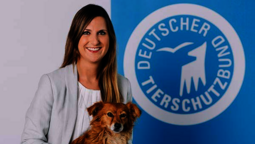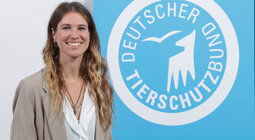The illegal trade in pets remains a lucrative business even after the pandemic, as the German Animal Welfare Federation's analysis for 2022 shows. 292 cases were reported, at least 1230 animals were affected. Almost all of them were confiscated. After the sad record in 2021, the figures have only fallen slightly and remain worryingly high, according to the federation. For the animal shelters, the care - especially of the many dogs from the illegal trade - means an extreme additional burden. The German Animal Welfare Federation points out that the cases analyzed only represent the tip of the iceberg.
"There is no end to the horrific illegal trade in cat and dog puppies. The criminal traders act completely unscrupulously and even accept the death of the animals", says Dr. Romy Zeller, specialist for pets at the German Animal Welfare Federation. The dogs and cats are bred and transported here like commodities: "Our analysis shows that The animals were very often too young to cross the border, many were sick and suffered from severe diarrhea, among other things. The puppies were offered on the internet for up to 3,000 euros - such advertisements are often indistinguishable from legitimate offers."
MAINLY PEDIGREE DOGS WERE TRADED
In addition to 1027 dogs, the illegally traded animals also included 96 cats and 107 animals of other species, including a coati and a puma. Among the dogs, pedigree dogs such as Miniature Spitz and Maltese were particularly well represented. Most cases were reported in Bavaria, Berlin and Saxony. The transports came primarily from Eastern European countries, most frequently from Romania. As was already noticeable in the previous year, in addition to the illegal imports from abroad, several illegal breeding operations in Germany were again uncovered in 2022 that were trading in puppies with pedigree animals.
ANIMAL SHELTERS REACH THEIR LIMITS
After a confiscation, animal shelters and rescue centers usually take care of the victims of the illegal trade. The costs are mainly borne by the associations themselves - although the accommodation of confiscated animals is a mandatory task under public law that is carried out on behalf of the authorities. This service is rarely reimbursed to cover costs. For the animal shelters, which are currently not only overcrowded but also financially stretched to the limit due to price increases for energy, food and veterinary fees, this means an extreme additional burden. And indirectly, the animal shelters also end up paying the price for not putting a stop to the criminal business, according to Zeller: "Puppies that are bought spontaneously and without much thought via the internet are often handed in by their owners when they are overwhelmed or incur high unforeseen costs because the animals are often seriously ill." In addition to financial support for animal shelters, the German Animal Welfare Federation is calling for, among other things, legal regulation of the online trade in animals and mandatory Europe-wide identification and registration of dogs and cats in order to curb the problem.








